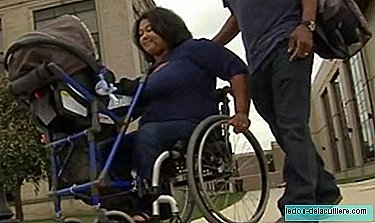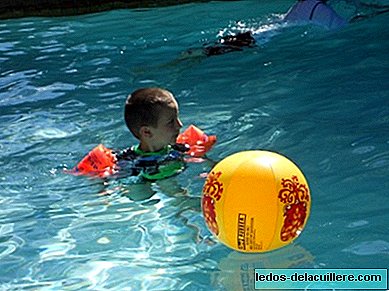Boys and girls are different in many things but until now we did not know that when reading: there are also differences.
According to a large study conducted in the United Kingdom, children between 5 and 18 years are lagging behind in reading comprehension. Boys read fewer books than girls, they read worse because they skip pages when reading, choose easier reading books and spend less time reading. What can English parents or us do if this trend also occurs at home?
Keith Topping Professor of educational and social research at the University of Dundee has been behind both massive studies and has coordinated them coming to these conclusions:
- the boys read less than the girls
- boys choose simpler readings than girls
- the kids skip pages when reading and spend less time reading
The idea that children do not like fiction has also been ruled out since researchers have looked equally at fiction and nonfiction books. Not even the socioeconomic level of the readers is related.
All these possibilities have been denied by the results of these studies.
After analyzing the data collected from the 852,395 students from 3,243 schools that participated in one of the studies, plus 150,220 children from the 967 schools that participated in the other, it was not possible to find the reason for this difference by Keith Topping,.
Interpreting the data, Professor Topping points out that the key or the difficulty too, is in finding out what interests the children. This would increase his interest in reading, increase the time he would spend reading and therefore his reading quality would also improve, something essential for his own evolution, his learning and his personal maturation.
Roald Dahl was the most popular author among children's choices in all age groups, perhaps because his stories are aimed at a wide age range of both boys and girls. However, in the early years of high school, children are already reading somewhat more complicated books like "Harry Potter" novels because they like and are interested in those stories.
Thorough analysis

These two studies in which it has been possible to analyze the data of almost one million British children, have been possible thanks to the computer system used by all schools in the United Kingdom through which the reading progress of students, of all students, is evaluated automatically.
When a student from a British center reads a book, he tests about 10-20 questions depending on the length of the book read.
When you finish that test and send it to the system, the teacher of that student and the student, receive on your computer the response of this program with the reports of the books you have read, the number of words in those books, the level of reading of the child and his level of reading comprehension.
The results of these tests have been lower among boys than among girls, at all points.
Classroom solutions
Teachers, class aides, librarians who spend time with the child to talk about different reading options, suggestions for the most difficult books in the context of what interests them.
Books that challenge them, that interest them intellectually and that make them think, that they not only entertain them but that above all they do.
They have to have an assigned reading time so that they can thoroughly concentrate on what they are reading.
What could be done at home?

Read them, to them when they are small and with them when they grow. Have them read to us when they begin to learn to read, to put letters together and to see us also read to us, to serve as an example. Precisely in the United Kingdom, only 13% of parents read stories to their children at night, they may have some kind of relationship.
Not force them to read, there is nothing more effective for them to hate reading.
Imagine our good intention as the hairdresser we were talking about a few days ago, that makes discounts to children who read while he cuts their hair or the teacher who raps the texts of British classical literature with and for his students.
Help them To read better every day, there are innovative systems that are getting very good results and that can be tested with our children so that by reading better, enjoy more and read more.
Why not read and write at the same time? Why not introduce small readings first, before the books? They can handle them when they are younger to write and read the shopping list every week or when they are somewhat older they can write letters or mails and receive them too, reading would be almost like a game and the jump to the book would be less distressing for them.












